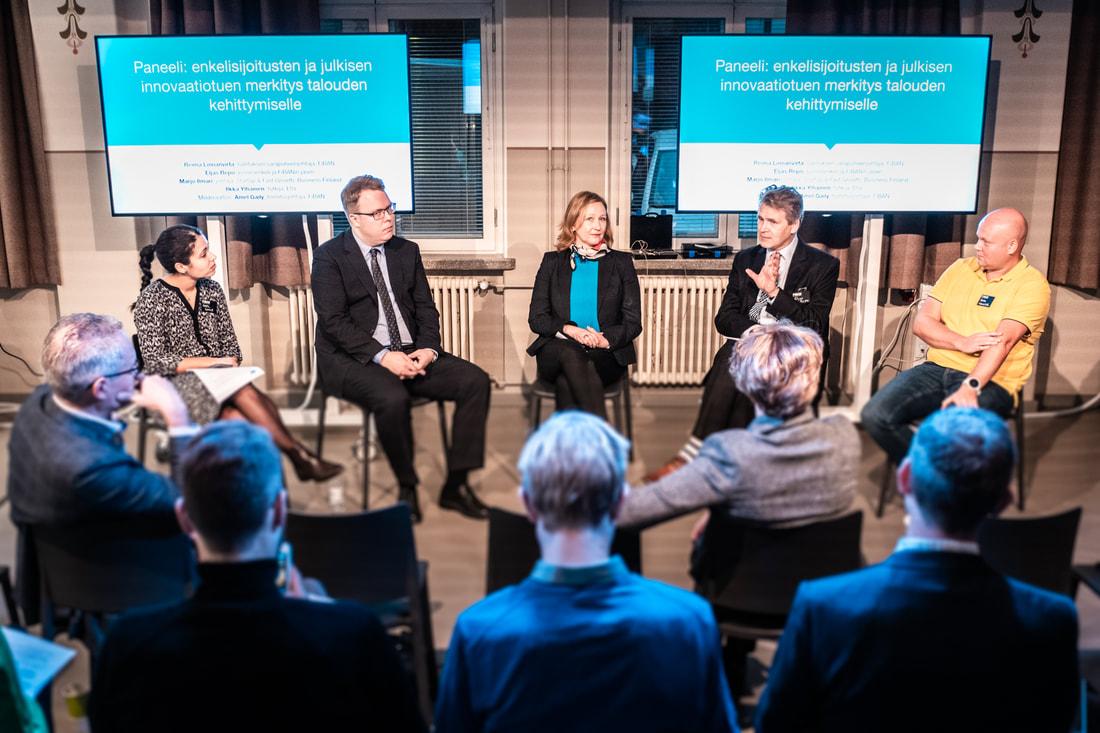
There has been limited data available on the real effects of business angels. Only a few studies have addressed such data with the necessary preciseness. From this starting point, the pioneering study conducted by The Research Institute of the Finnish Economy (Etla) has taken a giant leap to open up the mystery.
Etla’s new study Business Angel Investment, Public Innovation Funding and Firm Growth (ETLA Report 97) combines an extensive literature review of business angel investments with an econometric analysis of the impact of angel investments. Also, the correlation between private angel funding by FiBAN members and public innovation funding by Business Finland was studied for the first time. The findings offer useful tools for developing the startup investing environment.
Opening avenues for new research
Etla’s literature review affirms that business angels have played a significant role in multifaceted economical occasions. Starting from the second industrial revolution in the late 19th century, local informal investors have financed groundbreaking inventions. Besides the retrospect of angel investing, Etla’s literature review compiles good practices of several topics including formalized angel group investing, decision-making models and relation to VCs.
The “invisible markets” of angel investments are challenging to measure, as OECD (2011) states. This challenge was accepted by Etla, when conducting an econometric analysis on private investments made by FiBAN members and public innovation funding provided by Business Finland during 2013–2017. The evaluation is based on company-level data from several sources. FiBAN’s annual investment statistics is merged with funding decisions made by Business Finland as well as business register data from Statistics Finland and Suomen Asiakastieto Oy.
The results show that 80% of firms funded by business angels in 2013–2017 operate in the service sector. As many as 41% of target firms provide information and communication technology
According to Etla’s study, angel-funded companies seem more likely to survive in business: after 2 years, 83–93% of angel-backed firms continued their operations, while in the comparison group, the corresponding share was 78–84%.
The research reveals the high level of synergies between the public and private funding elements. As many as 75% of the studied companies received both angel investments and public innovation funding from Business Finland.
Etla’s study address that more time is needed for deeper understanding of the holistic effects of angel investing. Due to data limitations, Etla’s economic analysis period was 1-4 years after receiving angel funding. During this period, the number of employees in angel-funded companies grew statistically better compared to the control group. Also net sales increased, but statistically the difference was significant only four years after the investment.
When considering the nature of early stage startup companies the analysis period of the research was rather short. Business angels’ typical investment horizon is 5-10 years. Business angels are often the first investors of a company, and thus they boost the creation of entirely new businesses especially in the phase of product development. As such, it is natural that the net sales of angel-backed companies start growing at a later stage in comparison to companies that fund their operations through cash flow.
As more data accumulate, the pioneering study opens up an interesting avenue of research.
Strong growth of angel investing in Finland
Etla’s deep analysis on the economical effect on angel investing completes the research work that has been done at FiBAN for many years. FiBAN has collected data about business angel investments in Finland ever since the association was established in 2010.
Every year, FiBAN makes a survey to its members and thus compiles one of the world’s most comprehensive yearly surveys for business angels. The annual angel investment statistics are published every spring together with the VC statistics made by the Finnish Venture Capital Association (Pääomasijoittajat ry). In 2018, FiBAN’s business angels invested 36 million euros into 435 startups.
The research data enables following and analyzing the development of angel investing. As FiBAN recently started its 10th year of operations, the network has grown from 20 founding members to over 670 qualified investor members. At the same time, the representation of members has increased from one nationality to over 20 nationalities. Since 2010, FiBAN members have invested at least a quarter billion euros into startups. This demonstrates that business angels play a big role in creating high growth companies, thus catalyzing the regional economy.